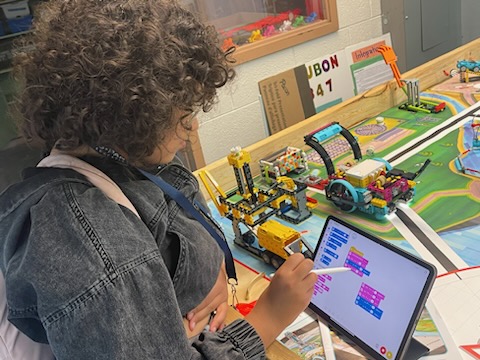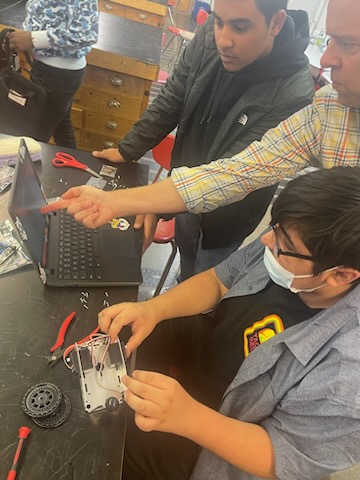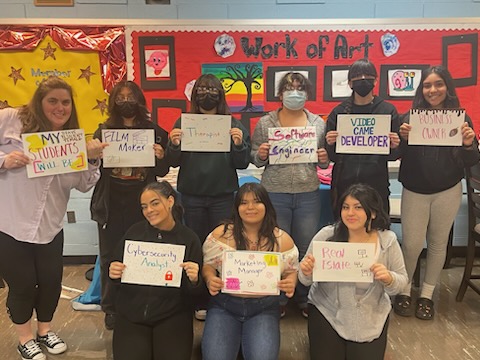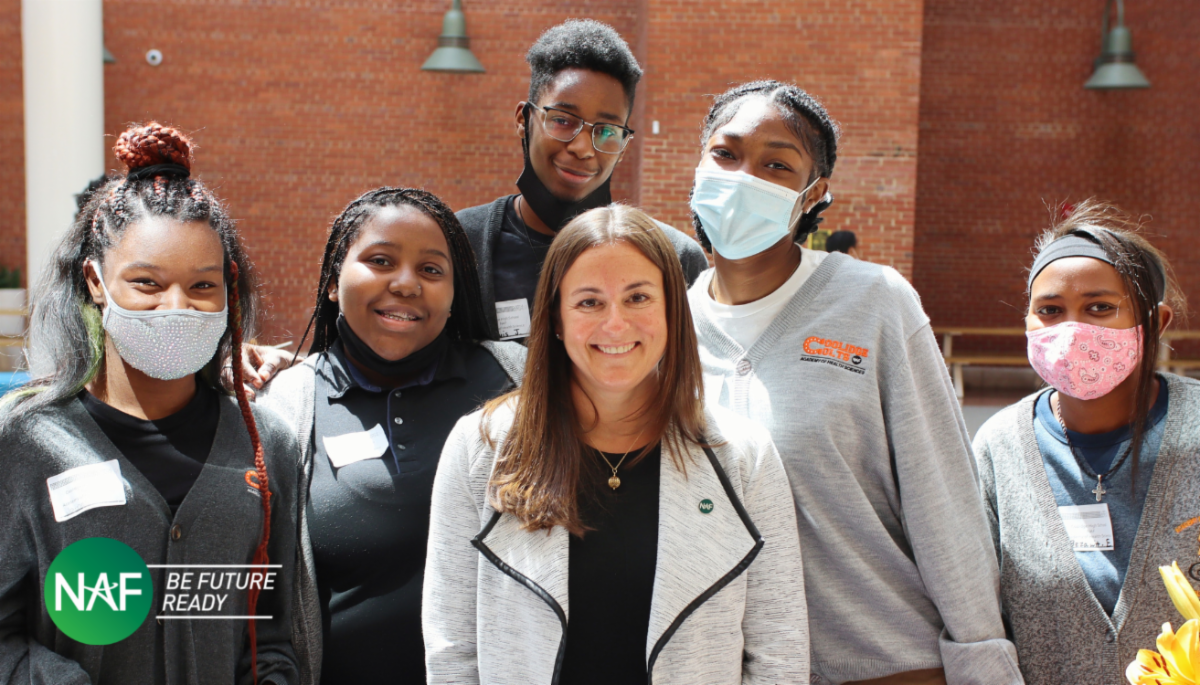Expanding Access to Computer Science Education at Audubon HS
Computer Science Education Week is December 5-11th. Our high school has undergone a massive transformation to provide our students with more access to Computer Science (CS) education. The Audubon Technology and Communication Center’s, NAF Academy of Information Technology in Milwaukee, WI, was launched during the 2020-2021 school year. After we conducted a survey of our students, we gained insight into what our student body was interested in pursuing post-graduation. The results of the survey concluded that our students overwhelmingly had an interest in tech-related careers and post-secondary education majors. At the time of the survey, there were no tech-related courses available.

We started small, offering just two CS classes – Exploring Computer Science and Graphic Design. We had existing staff that had some experience with computer science but had to enhance their knowledge to meet the expectations of courses that aligned with local industry needs. Our teachers underwent extensive professional development – attending conferences, completing external training opportunities to learn about Python programming, cybersecurity, and computational thinking practices, and met with local industry professionals and Microsoft TEALS volunteers.
In just three years, we have expanded to offer seven different courses for students to choose from. Those courses include: Exploring Computer Science, Graphic Design, Python Programming, CompTIA+ Certification Prep, Google Suite Training, Cybersecurity, and AP Computer Science Principles. Our students gain experience in computational thinking practices and problem solving, collaborating to create meaningful change in their communities and career-related competencies.
This transition to CS programming was not easy on our students. Computer science is not offered consistently in K-12 classes in our district, and as a result, students lacked the background knowledge of computational practices when we first launched our programming courses. To solve this, we have also expanded our NAF programming to our middle school students, with the intention of building students’ foundational skills so they are prepared for CS coursework in high school. Courses currently offered in 6th-8th grade, include Intro to Computer Science, Intro to Programming I, Intro to Programming II, and Project Lead the Way’s Gateway to Technology.
We are collaborating with local companies to offer work-based learning experiences for our juniors and seniors, so they can practice and grow the skills they learned in our CS courses and understand what working in a career might look and feel like for them. This way, they are better prepared to make choices regarding their post-secondary plans.
We also expanded exposure to CS outside of the traditional curriculum. For example, for this year’s Hour of Code/CSEdWeek, we partnered with NAF to create a student-led walkthrough video for one of the Hour of Code activities, Code Your Brand. One of our students filmed the video — teaching viewers how to complete the activity in Replit, using Python. Our entire school will be completing this activity to celebrate the genius that exists within our school community. We also connected with Kohl’s Department Stores to provide activities with current UX and Fashion Design employees to dive into the world of tech careers. It is our hope to continue growing our CSEdWeek activities each year.

Our computer science learning experiences do not end at the dismissal bell. We have partnered with The Boys and Girls Club of Greater Milwaukee (CLC) to provide after-school programming, aligned with day school courses. Students can choose to participate in FIRST Tech Challenge Robotics, FIRST Lego League Robotics, drone flying, STEM challenges, CS tutoring, Girls Who Code, and SkillsUSA. FIRST Lego Robotics and Girls Who Code were introduced at the Middle School level during the 2019-2020 school year. In these two programs, our members learned engineering and programming concepts, as well as essential future ready skills such as problem solving, team collaboration, meeting deadlines, public speaking, project management, and decision making. FIRST Lego Robotics was so successful and engaging that our high school members asked to have a robotics program of their own. FIRST Tech Challenge was started at the high school level in the 2022-2023 school year. High school students benefit from the same learning outcomes as the middle school students but at a more advanced level. Our high school students have also started to learn about how to interact within professional and networking environments, in order to provide community outreach, secure future funding for programs, and gain mentorship opportunities.
In addition to our robotics programs, Audubon CLC also offers in-house STEM programming focusing on technology and engineering and Drone flying. Audubon CLC staff create meaningful project-based learning experiences for all members to expand the opportunities for building highly sought-after career skills and experience, in working with and innovating upon the latest trends in technology for business, national security, leisure, and education. The Drone flying curriculum specifically focuses on how this technology has the power to influence commerce, national security, video production, and safety, for first responders.

It has taken a lot of work, collaboration, and dedication to create this well-oiled machine and we are committed to continue upgrading our student learning opportunities. If you are striving to build your CS program, remember – start small! The opportunities will build on themselves and before you know it, you’ll be looking at an enriching and exciting program. We are the future of tech!
Check out NAF’s CSEdWeek page to learn more.





